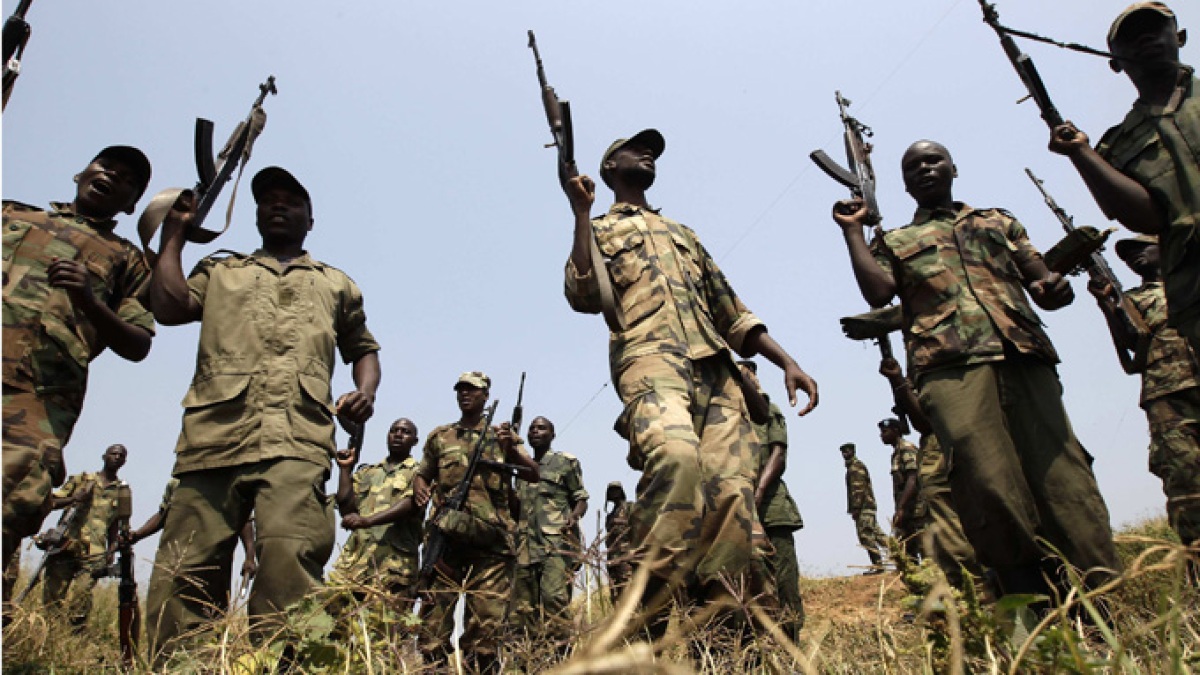Kinshasa orders Ambassador Vincent Karega to leave the country within 48 hours after accusing Kigali of supporting M23 rebels.
The Democratic Republic of the Congo’s government has ordered Rwandan Ambassador Vincent Karega to leave the country within 48 hours after accusing Kigali of supporting M23 rebels, who have seized two towns in the DRC’s east, raising tensions between the two countries.
Saturday’s announcement by government spokesman Patrick Muyaya came after a meeting of the defence council, presided over by President Felix Tshisekedi, in the wake of rebels seizing control of Kiwanja and Rutshuru in the province of North Kivu.
DR Congo has repeatedly accused Rwanda of backing the rebels, an allegation Rwanda has repeatedly denied. The decision to expel Karega is expected to further ratchet up tensions between the two countries whose relations have been fraught for decades.
Muyaya said that in recent days “a massive arrival of elements of the Rwandan element to support the M23 terrorists” against DR Congo’s troops had been observed.

“This criminal and terrorist adventure” had forced thousands of people to flee their homes, he added.
Rebel advance
The latest advance by rebel fighters prompted the UN peacekeeping mission, known as MONUSCO, to increase its “troop alert level” and boost support for the army.
Fierce fighting erupted on Saturday morning between the Congolese army and M23 rebels in Kiwanja, which is 70km (43 miles) from the North Kivu capital, Goma.
John Banyene, a local civil society leader, later told The Associated Press that the rebels now controlled both Kiwanja and Rutshuru Centre. AFP, quoting unnamed officials, said the rebels had seized control of the towns.
“As we speak, we confirm that the M23 rebels and their allies control the town of Kiwanja, but the armed forces of the Democratic Republic of Congo are not giving up,” Banyene told journalists in Goma.
There was no immediate confirmation from Congolese authorities or the military on the reported seizure of the two towns.
Ongoing fighting
The M23 was formed in 2012, claiming to defend the interests of Congolese Tutsis, a group sharing the ethnicity of Rwanda’s President Paul Kagame, against Hutu armed groups, seizing Goma, the largest city in DR Congo’s east, the same year. After a peace deal in 2013, many M23 fighters were integrated into the national military.
The group resumed fighting in late 2021 after lying dormant for years, accusing the government of having failed to honour an agreement over the demobilisation of its fighters.
It has since captured swathes of territory in North Kivu, including the key town of Bunagana on the Ugandan border in June.
Since May, M23 has waged its most sustained offensive in years, killing dozens and forcing at least 40,000 people to flee in only a week’s time. Nearly 200,000 people had already been displaced over the past year even before the latest surge in violence.
The M23’s resurgence has inflamed regional tensions and spurred deadly protests against the UN peacekeeping mission in DRC, which civilians accuse of failing to protect them.
Rwanda denies the charges and counters that DR Congo works with the Forces for the Liberation of Rwanda (FDLR), a notorious Hutu rebel movement involved in the 1994 genocide of Tutsis, which Kinshasa also denies.
In August, a report by UN experts said they had “solid evidence” that members of Rwanda’s armed forces were conducting operations in eastern DR Congo in support of the M23 rebel group.
Rwanda, though, has repeatedly denied the allegations and has accused Congolese forces of injuring several civilians in cross-border shelling.
